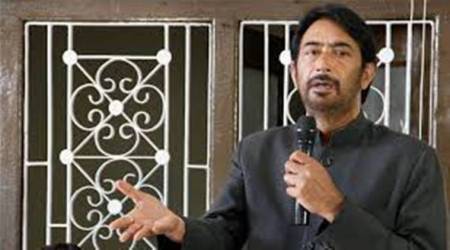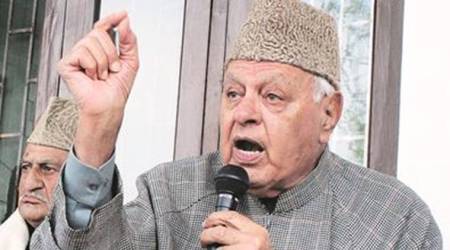 The Jammu Chamber of Commerce also did not see anything wrong in Article 35 A being repealed. (Representational image)
The Jammu Chamber of Commerce also did not see anything wrong in Article 35 A being repealed. (Representational image)
In the middle of debate on Article 35A, which allows Jammu and Kashmir to define its “permanent residents”, the constitutional provision seems to have few takers among political parties and other organisations in Jammu. Jammu and Kashmir National Panthers Party chairperson Harsh Dev Singh described Article 35A as unconstitutional. “It is void ab initio as it is not passed by Parliament, but has been extended to Jammu and Kashmir by virtue of a Presidential order,” he said. Kashmiri politicians have been supporting it only to project J&K as different from India, he added.
Ashwani Chrungoo, president of Panun Kashmir, a front organisation of migrant Kashmiri Pandits, said there was a need to get rid of the “stifling statute” (Article 370) “coupled with Article 35A, which have provided a constitutional mechanism to promote fissiparous and separatist tendencies in J&K. This Article has created a state within a state and provided justification to so-called sub-nationalism,’’ he added.
Another migrant Kashmiri Pandit leader, Vinod Pandit, chairman of the All-Parties Migrant Coordination Committee, had a similar view. “If Article 35A comes in the way of development of the state compared to other parts of the country, there will be no hesitation in repealing it,” he said.
Javed Rahi, general secretary of Tribal Research and Cultural Foundation, said that though tribals were not opposing the Article at present, the constitutional provision had adversely affected their development. He pointed out that people from Gujjar and Bakerwal communities got Scheduled Tribe status way back in 1991, but they did not get political reservation in the state legislature despite the fact that they were the third largest group after Kashmiri Muslims and Dogras.
The Jammu Chamber of Commerce also did not see anything wrong in Article 35 A being repealed. Even Muslim leaders in Jammu did not speak in support of it. Congress leaders treaded cautiously. “It is a sensitive and debatable issue and it will be kept in public domain so as to take on board people of all three regions of the state including civil societies,’’ said state Congress vice-president Sham Lal Sharma.
Pointing out that the issue is sub judice, Sharma said that old laws should be revisited by taking people on board as part of a democratic structure. But before that, the Centre and state government should clear their stand on the issue, he added.
National Conference provincial president Devender Rana, however, said that state subject laws were brought into force by Maharaja Hari Singh in 1927 to protect Jammu Dogras from the rich people from Punjab. “It these are removed, the greatest damage would be to Jammu Dogras in terms of economic condition, employment and identity. People of all three regions will suffer,” he said.
The BJP, which is in power in the state in alliance with the PDP, also did not support Article 35A. “It has done damage to the state and the Indian nation,’’ said state BJP spokesperson Sunil Sethi.
On the alliance with PDP, he said, “The BJP in its agenda of alliance with PDP has committed that it will not alter any of the constitutional provisions. Abiding by coalition dharma, the BJP on its own will not do anything to alter any provision of the Constitution.”
Professor Hari Om, a historian and social activist, said, “It is an atrocious article that creates a high wall between people of J&K and the rest of India. It must be thrown out lock, stock and barrel.”

